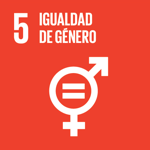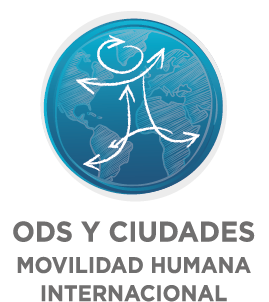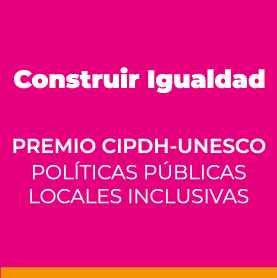
- Region
- Latin America and the Caribbean
- Range of Demographic Size
- 100,000 to 499,999 inhabitants (large intermediate)

5.1 End all forms of discrimination against all women and girls everywhere in the world.
5.2 Eliminate all forms of violence against all women and girls in the public and private spheres, including trafficking and sexual and other types of exploitation.
5.3 Eliminate all harmful practices, such as child, early and forced marriage and female genital mutilation.
5.4 Recognize and value unpaid care and domestic work through the provision of public services, infrastructure and social protection policies and the promotion of shared responsibility within the household and the family as nationally appropriate.
5.5 Ensure women’s full and effective participation and equal opportunities for leadership at all levels of decision-making in political, economic and public life.
5.6 Ensure universal access to sexual and reproductive health and reproductive rights as agreed in accordance with the Programme of Action of the International Conference on Population and Development and the Beijing Platform for Action and the outcome documents of their review conferences.
5.a Undertake reforms to give women equal rights to economic resources, as well as access to ownership and control over land and other forms of property, financial services, inheritance and natural resources, in accordance with national laws.
5.b Enhance the use of enabling technology, in particular information and communications technology, to promote the empowerment of women.
5.c Adopt and strengthen sound policies and enforceable legislation for the promotion of gender equality and the empowerment of all women and girls at all levels.
• Inter-American Convention on the Prevention, Punishment, and Eradication of Violence against Women (Convention of Belém do Pará)
Convention on the Rights of the Child (CRC).
Convention on the Elimination of all Forms of Discrimination Against Women (CEDAW).
Universal Declaration of Human Rights (UDHR).
Summary
The participatory community program “Hockey Social” involves the active participation of girls in vulnerable situations through sport. The goal of this project is, in addition to playing hockey, to offer girls a contention space as well as a space for assistance with regard to the different issues they face. Sport activity teaches them to acquire values and attitudes through practice with their peers, which positively influences coexistence within the local community. The project is supported by a team of coaches and a team of psychologists, offering a multidisciplinary approach to hockey practice. The program was designed for girls between 7 and 12 years old to participate and learn to play hockey, acquiring social skills, sharing between themselves a variety of knowledges related to hockey practice and health care through the promotion of healthy habits.
“Hockey Social” is carried out across different vulnerable neighborhoods in Yerba Buena, Tucumán province, Argentina. One of the main pillars of this effort is the implementation of a gender perspective. The project was created with the aim of building a community space of active participation through sport and recreation for girls in vulnerable economic and social situations. It seeks to revalue public space for young girls to use it, in this case, in the realm of sport. The project is thought as a safe, accessible, and suitable space for girls to reach a sense of belonging and be able to develop their identity within their neighborhood. At the same time, the project creates a framework of active participation and psychosocial contention, distinguishing the prevalent psychoemotional issues through sport and interdisciplinary work.
Implementation Date:
Start: 03 / 1 / 2016
End: End: Currently in force
- Email: javier.risso@gmail.com
- Web: https://www.yerbabuena.gob.ar/
- Telephone: +54 0381 1453-3636
- Social Network:
Instrumentos

5.1 End all forms of discrimination against all women and girls everywhere in the world.
5.2 Eliminate all forms of violence against all women and girls in the public and private spheres, including trafficking and sexual and other types of exploitation.
5.3 Eliminate all harmful practices, such as child, early and forced marriage and female genital mutilation.
5.4 Recognize and value unpaid care and domestic work through the provision of public services, infrastructure and social protection policies and the promotion of shared responsibility within the household and the family as nationally appropriate.
5.5 Ensure women’s full and effective participation and equal opportunities for leadership at all levels of decision-making in political, economic and public life.
5.6 Ensure universal access to sexual and reproductive health and reproductive rights as agreed in accordance with the Programme of Action of the International Conference on Population and Development and the Beijing Platform for Action and the outcome documents of their review conferences.
5.a Undertake reforms to give women equal rights to economic resources, as well as access to ownership and control over land and other forms of property, financial services, inheritance and natural resources, in accordance with national laws.
5.b Enhance the use of enabling technology, in particular information and communications technology, to promote the empowerment of women.
5.c Adopt and strengthen sound policies and enforceable legislation for the promotion of gender equality and the empowerment of all women and girls at all levels.
• Inter-American Convention on the Prevention, Punishment, and Eradication of Violence against Women (Convention of Belém do Pará)
Convention on the Rights of the Child (CRC).
Convention on the Elimination of all Forms of Discrimination Against Women (CEDAW).
Universal Declaration of Human Rights (UDHR).
Location
- Region
- Latin America and the Caribbean
- Range of Demographic Size
- 100,000 to 499,999 inhabitants (large intermediate)
Contact details
- Email: javier.risso@gmail.com
- Web: https://www.yerbabuena.gob.ar/
- Telephone: +54 0381 1453-3636
- Social network:



